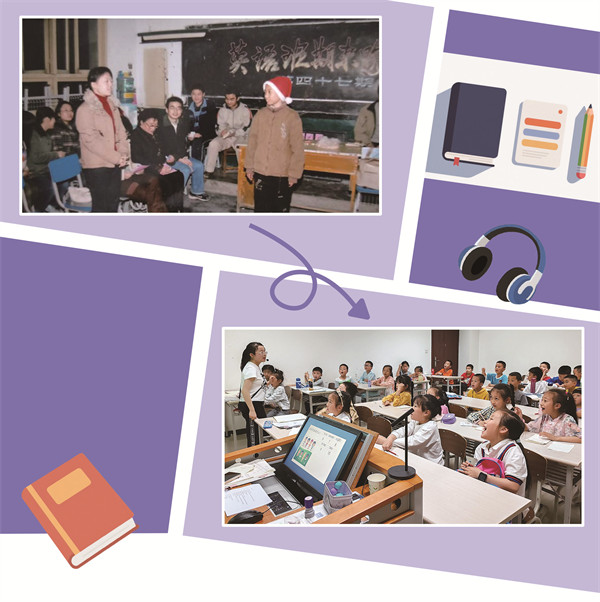Living room to legacy


For over four decades, dedicated student and teacher volunteers have opened doors to new opportunities through free English education.
The magnolia flower, a precious and unique garden plant native to China, has long resonated with people as a symbol of purity, elegance, and resilience.
These very qualities are reflected in the Magnolia Volunteer Service Group, whose name pays tribute to the flower's enduring spirit. Formed by generations of students and teachers from Southwest University in Chongqing, the group has provided free English language training to the public since 1981, making it one of the longest-running volunteer programs in China.
So far, about 2,500 students and 200 teachers from the College of International Studies have participated in the project, serving more than 6,500 young learners and 4,000 adults.
Though still called the "Sunday English Class", the program is now held on Saturdays to better accommodate children's school schedules.
There are usually 12 classes each semester. Every Saturday evening from 7 to 8:30, around 150 children aged 5 to 12 attend classes on the fifth floor of the College of International Studies.
They are divided into five classes based on their English proficiency, with each class led by two student volunteers — one teaching and the other assisting with classroom management.
Teachers use picture books, cartoons, videos, games, songs, and various other tools to make learning English fun and effective.
"I have never missed a single class in the past five years," said Yang Chenyu, 11, who has attended the program since she was 6. "I like learning English because I want to see a bigger world. The class content here is more interesting and informative than what I learned at primary school."




































